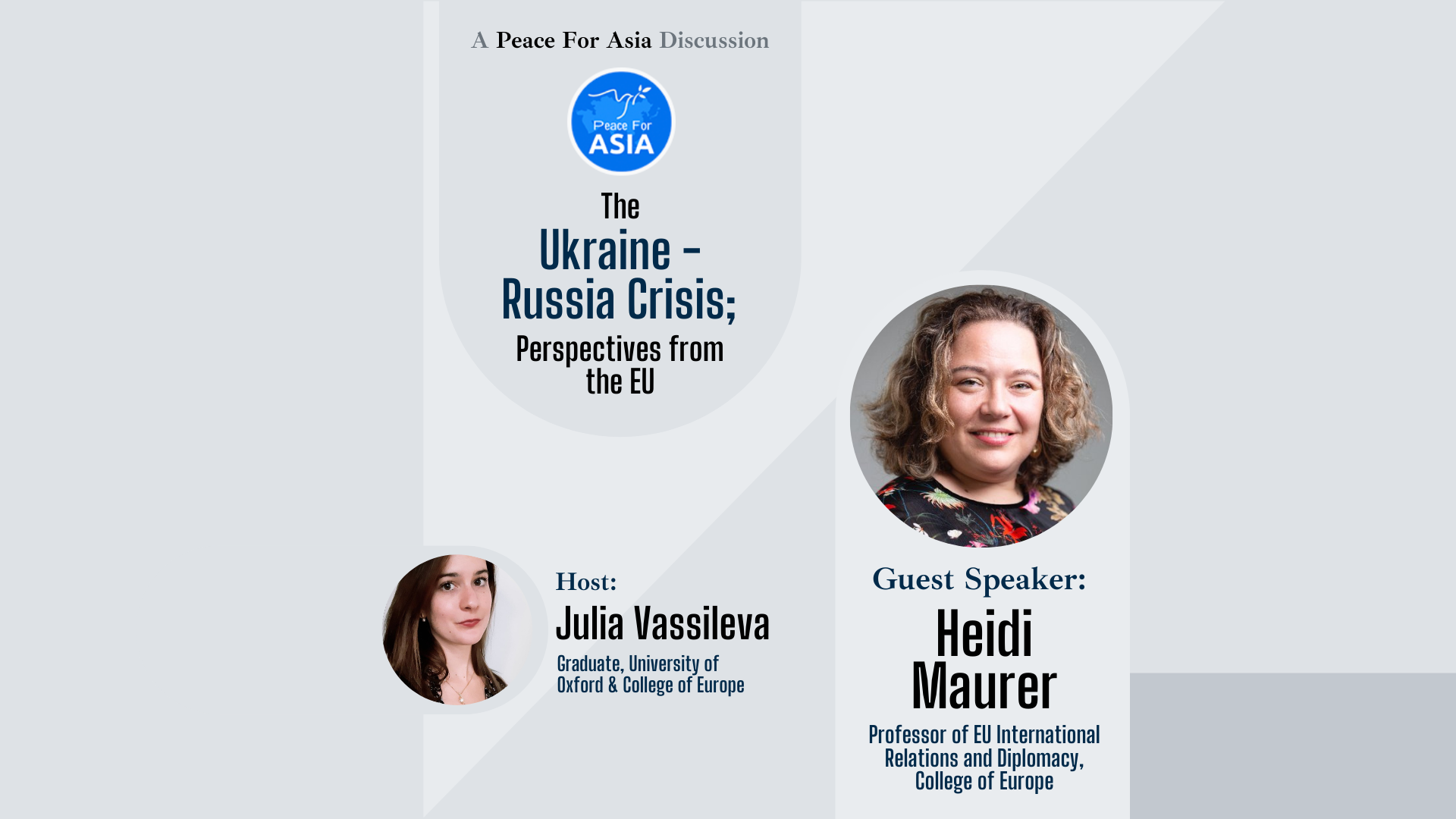To watch the webinar click here
Heidi Maurer is a researcher in the e-governance and administration department at the Danube University Krems, and a professor at the EU International Relations and Diplomacy Department of the College of Europe in Bruges. Previously, she was a Marie Curie Research Fellow at at the University of Bristol; a lecturer in EU politics at the Department of Politics and International Relations at the University of Oxford; a Fellow in EU and International Organisations at the London School of Economics and Political Science; an Assistant Professor in European Studies at Maastricht University. During 2012-13 Heidi Maurer was the Austrian Marshall Plan Foundation Fellow at the Center of Transatlantic Relations of the Johns Hopkins University School of Advanced International Studies (SAIS) in Washington, D.C.
In the Webinar with Peace for Asia, Prof Heidi Maurer shared thoughts on the developments in Ukraine and the EU’s position and reaction to them. She gave a general overview and critically discussed concepts, terms, and arguments.
Prof Maurer addressed the important questions of the option of EU-membership for Ukraine, and what the discussion about Ukraine’s membership to the EU might mean. She discussed the importance of stressing the fact that the EU considers Ukraine a part of Europe, and that the EU has expressed strong solidarity with Ukraine.
Furthermore, Prof Maurer discussed the nature of EU sanctions on Russia and how impactful they could be in the short to medium term. She pointed out that sanctions mean the use of interdependencies to signal disapproval with an action in international relations, something which might appear contradictory to the nature of the EU, which is building on interdependencies between European states. Importantly, Prof Maurer addressed the concept of trust in international relations and diplomacy, and the future of relations between the EU, Ukraine, and Russia.
Given that a large share of Europe’s energy requirements are supplied by Russia, Prof Maurer discussed the potential effects on Europe’s political and economic stability. She addressed the opportunities for the EU and the Green Deal in these developments, with an optimistic outlook.
Lastly, Prof Maurer commented on the relationship of the EU with other major international actors, such as the USA and China, and whether we can expect realignments in those relations.
Prof Maurer concluded by pointing out: ‘I think it can be difficult to see clearly while you are in the midst of it, and I think that is exactly where we are now. There a lots of questions that we have to ask and keep asking repeatedly, time and again (…) In this conflict, you see that public opinion can matter and it can really push governments to probably be a bit more active than they would have been otherwise (…) It is also a time to see how important it is to have this way of academic thinking, of constantly questioning what you know, what you don’t know, and what the other argument might be that you are not considering.’

